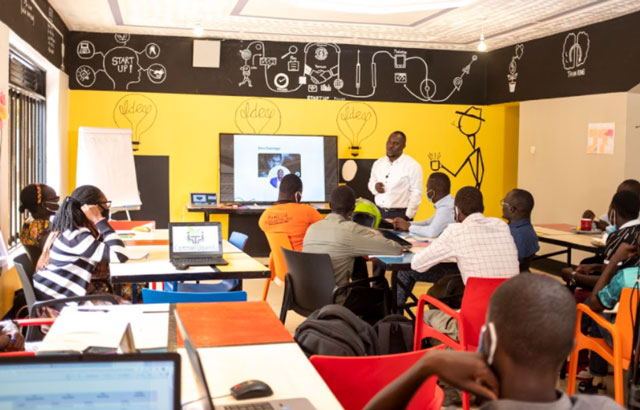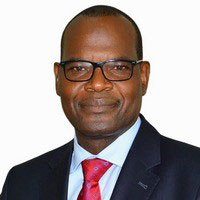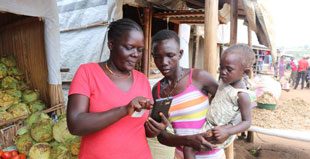
OPINION | JOHN OMO | Although Africa has proven its potential as a fast rising home to brilliant innovations, many innovators in the continent are struggling. Opportunities are hard to come by, and resource allocation to what could be viable trend-shifting ideas, is a mirage. Even worse, some of the stakeholders that support innovators struggle with sustainability to the extent of shutting down their operations, significantly reducing the level of available support to the innovators.
On the bright side however, the opportunities for Africa’s innovative brains are not all lost. Just last month, Google released about $2 million grant for non-profit and social-based enterprises using technology to improve lives in Africa.
The Huawei South Africa-based Cloud and Artificial Intelligence (AI) Innovation Centre is another existing facility that is open to developers and promotes innovation, knowledge transfer and, economic growth through app development in the Artificial Intelligence industry. Among others, including the African Telecommunications Union’s Africa Innovation Challenge Series, these openings are helping to bring hope for Africans to benefit from African ideas.
The opening line in a 2019 article by the Financial Times suggested that “foreign-owned start-ups are driving African tech revolution — and prompting fears of exploitation.” The article which drew reference to some of Africa’s finest innovations, including Kenya’s M-Pesa, Rwanda’s forays in health apps, Nigeria’s Cars45 as well as Jumia, had a very sad but interesting reflection of Africa’s recent past, terming the period as where “most value is added to commodities after they leave the continent”. While this may entirely not be the case today, there is the likely danger that the situation may recur.
In 2019 when Jumia, for instance, became the first exclusively Africa-focused e-commerce company to be listed on the US stock exchange, that perhaps should have been the golden break for Africa to initiate the process of penetrating into the global scene. Why we are still stuck at a place where innovators are looked at as beggars and not as partners when it comes to funding their ideas, is a shame. This explains how, according to a 2019 study by Afrilabs and Briter Bridges, over 110 hubs have shut down operations within the past half-decade.
Confronted by these unfortunate realities, stakeholders across the continent such as regulatory authorities, entrepreneurial support organizations, incubators, accelerators and learning institutions, must come together and attempt to provide the needed support to young ICT innovators. This way, we are likely to build a system that eases the desire of stakeholders to inject resources into prospects, with the likelihood of resulting in creation of income for youths, market expansion, improved livelihoods, upscaling of businesses, and funding.
Looking at the situation from an insider’s perspective, it is possible to not only have multiple organizations onboarded into the idea of funding innovations, but also have them work together. Competing interests must remain at the market place, and at no time should they stand on the way of progress for the African youth.
This year’s edition of the African Telecommunications Union’s Innovation Challenge is one example of how international actors can work together for the betterment of the ‘local man’. The Challenge which is expected to close on 31st of July 2021 is supported by the International Telecommunications Union, Huawei and Intel Corporation, which typically are many sides of different coins.
Taking notes from the lessons learnt over the years dealing with innovation, and especially from the classroom that was the first edition of the ATU Africa Innovation Challenge, a general agreement that many of us championing a partnership-led approach to innovator’s support have come to, is that it is not impossible to pull together. Common ideas, such as our theme for this year’s challenge, “Best ecosystem practices in Africa enabling youth ICT innovation” offer the starting point to generating useful engagements and reserving a seat at the table of partnerships.
Just like we expect innovators to build new ideas, innovation support must also be founded by unique concepts and ideas. Undeniably in this regard, I do anticipate to see some of Africa’s best practices that have created an enabling environment for youth ICT innovation to thrive, award them and showcase them to the continent when we announce winners in September.
We must admit that the process of innovation is complex and for innovators, especially young ICT innovators to thrive, they require resources, capacity building, effective policies, valuable networks, cultural change and a conducive economic environment. For all these factors to be present within an innovation ecosystem, all stakeholders need to work together.
With the exposure to ICT today being at a considerably earlier age compared to the older generation, it shouldn’t be difficult to agree on the question of why invest in the youth. It is for this reason that growing and fostering innovation has been recognized by the United Nations as a key piece of the puzzle to sustainable development under goal 9 that calls for fostering innovation.
The alternative for the case that this opinion projects, is a continent that has no regard for innovation, and therefore no regard for the future.
*******
 JOHN OMO is the Secretary General of the African Telecommunication Union (ATU), a specialized agency of the African Union, in the field of telecommunications. ATU promotes the rapid development of info-communications in Africa in order to achieve universal access, and full inter-country connectivity. For more information on the Union, log in to https://www.atuuat.africa/
JOHN OMO is the Secretary General of the African Telecommunication Union (ATU), a specialized agency of the African Union, in the field of telecommunications. ATU promotes the rapid development of info-communications in Africa in order to achieve universal access, and full inter-country connectivity. For more information on the Union, log in to https://www.atuuat.africa/
 The Independent Uganda: You get the Truth we Pay the Price
The Independent Uganda: You get the Truth we Pay the Price



